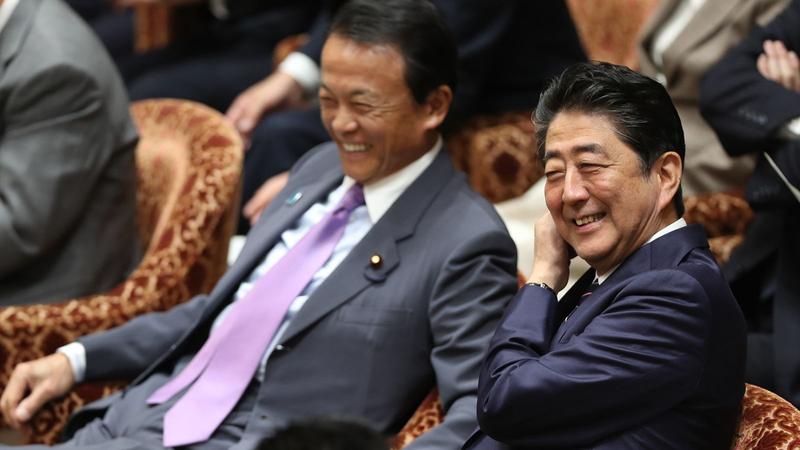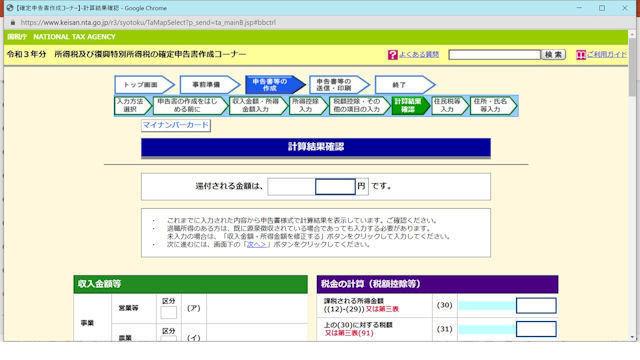Is it possible to reconsider the key to the opposition party's breakthrough, "country vs. politics"? Hold party leaders' debates every other week at night
The End of Politics Without Dialogue
Since the House of Representatives election, I have had the impression that Japan's politics may finally change dramatically.
This is because the results of the House of Representatives election show a change in the image of politicians sought by voters.
One is "generation change" and the other is "problem-solving ability (policy realization ability)".
Traditionally, the ruling party government resisted rather than aggressively aiming to amend the bill, such as by blocking the "constitutional revision" and unilaterally denouncing the ruling party government in the Diet (budget committee) with television relay. The appearance of doing so occupied most of the "image of the opposition party", and there was a part that was expected by the supporters of the opposition party.
However, many of the legislators who were at the center of such a movement were defeated this time, and the old liberals (mainly those in their 60s and older) who were looking for conventional politicians retreated and instead sought new political literacy. There is a high possibility that changes will accelerate further in the future, such as an increase in the number of generations who have it.
Related article: Hope and concern that young people's voter turnout will continue to rise in the future (Yuki Murohashi)
Furthermore, looking at the public reaction to the 100,000 yen handout, I get the impression that they are calmly ascertaining the effects and significance, rather than drifting towards populism.
On the other hand, the Diet has not been able to respond to such changes in the people.
According to the "Public Opinion Survey on Japanese Politics and Democracy" by the private think tank "Genron NPO""Revitalization of the Diet" is a necessary reform to make Japan's democracy function. 41.5% When asked if the Diet is functioning as a ``house of speech'', 9% of the respondents answered ``Yes'', less than 10% The low level of trust in the Diet is highlighted.
In addition, in a survey conducted by the Nippon Foundation targeting 17- to 19-year-olds, when asked if the Diet is useful for people's lives, 30% answered "not useful", while half Nearly the answer is "I don't know."
Regarding the debates in the Diet, the majority said they "know" or "somewhat know," but 54.8% said, "I don't think it's a place for meaningful policy discussions." /b>, and pointed out that the reasons for this are that "discussions are not engaging," "too many exchanges other than policy," and "the same questions are being asked repeatedly."
Japan's Galapagos Diet
Why isn't the Japanese Diet becoming a "meaningful place for policy discussions"?
It is more about the structure of the Diet than the quality of politicians.
In Japan's policy planning and decision-making process, the ruling party has a "preliminary review system" and "party deliberation restraint". Since the bill has been finalized, the bill will not be amended during parliamentary deliberations, leaving little room for the opposition party to improve its performance.
As a result, in order to force the bill to be scrapped, we have no choice but to engage in a “scheduling battle”, and the ruling party is currently considering the opposition parties so that the deliberations will not be rejected.
And what bills will be passed on what schedule is decided in a "closed room" by the chairman of the diet measures committee of the first ruling and opposition party ("nation vs. politics"), and the debate in the diet will be the bill. It rarely has a big impact.
What is pre-examination?: Bills submitted by the Cabinet are pre-examined by subcommittees within the ruling party and passed by the General Council.
Restriction on Party Discussions: Following party decisions, you are restricted from voting freely on your own will when passing bills. As a result, when the ruling party holds the majority of the seats, it is less likely that the bill will be amended.
What is the principle of non-continuation of the session: When the session of the Diet ends, bills that have not been voted on will be discarded and deliberations will start from scratch.
What is government versus politics? Holding the real power of the Diet administration by holding discussions to plan the operation. Because it was not an official event, the meeting was held behind closed doors and no minutes were recorded.
Former member of the House of Representatives, Shiori Kanno, of the Democratic Party for the People, points out, "Country vs. Politics."
Simply, if the role of the opposition party is only to prevent "constitutional revision" and monitor the ruling party government like the 1955 system, there may not be a big problem with the current structure, but politicians In the current situation where "problem solving" is included in the expectations for , there is a big obstacle.
Above all, it is against the national interest, and it is difficult for the opposition party to achieve policy results such as amending the bill, and it is difficult to escape from the criticism that it is "only criticism".
On November 20, 2019, a member of the House of Representatives of the Democratic Party for the People, Motohisa Furukawa, pointed out at an opinion exchange meeting held by the Japan Youth Council and the Democratic Party for the People regarding ``Reform of the Diet and Improvement of Long Working Hours for National Public Servants''. However, it would be desirable to gain the support of the people through debates in the Diet.
"In the UK, free discussion in article-by-item review is the gateway to success for politicians, and there is an evaluation system that prevents lawmakers who lack ability from becoming vice ministers or ministers. (Rep. Furukawa)
Related article: [Reform of the Diet] The Democratic Party for the People announced improvement measures to correct late-night overtime work of bureaucrats, first implement what each party can do (Yuki Murohashi)
For Substantial Discussions in the Diet
Then, how should we change the Japanese Diet?
In 2019, the Japan Youth Council, of which the author serves as a representative director, put together a "Diet Reform" proposal (at the end of this article) and made a proposal to each party, but in the future, with a view to abolishing government versus politics At the same time, I think it is important to revitalize Diet deliberations first.
What can be done immediately for that purpose is "partial relaxation of restrictions on party meetings" and "regularization of party leaders' debates and holding them at night."
Regarding the former "partial relaxation of restrictions on party deliberations", the Liberal Democratic Party's House of Representatives member Hideki Makihara and House of Representatives member Goshi Hosono answered the following in an interview with the author.
The other is "regularization of the party leaders' debate and holding it at night."
The ideal is to hold it every Wednesday like in England, but it would be nice if it could be held every other week.
This idea was also put forward by the bipartisan ``Heisei Uchi no House Reform Realization Conference'', including Shinjiro Koizumi, a member of the House of Representatives, and Kenta Izumi, a member of the House of Representatives who will run for the representative election of the Constitutional Democratic Party this time. However, in order for the public to know about the debates in the Diet, it is important to hold them at night, not during the day.
If it becomes a regular event, instead of the party leader every time, a person in charge of a specific field (current minister, shadow cabinet minister, etc.) will be able to take the stage, which will lead to deeper discussions and foster various lawmakers. .
In any case, we should proceed with the reform of the Diet so that the Diet can have lively discussions so that the public will think that it is a place for meaningful policy discussions.
As a result, it will raise the level of Japanese politics and lead to increased trust in the opposition party.

November 20, 2019
Japan Youth Council
Reform of the Diet, proposal to improve long working hours of national civil servants
When the Ministry of Health, Labor and Welfare's young team conducted a survey of the Ministry's staff, about half of the staff in their late twenties answered that they "wanted to quit", and also said that they were "a group of people seeking work style reform for bureaucrats". According to the results of a questionnaire survey of 1,006 bureaucrats in all ministries and agencies, the average overtime hours per year was 963 hours. This is well above the upper limit of 720 hours of overtime work prescribed by the National Personnel Authority, and it is a calculation that always exceeds the karoshi line of 80 hours per month. In this way, while the “blackening” of national civil servants is increasing, the number of students who aspire to become career bureaucrats is also on the decline.
One of the major causes of the long working hours is "response to the Diet", and reform of the Diet is required to improve the working environment, strengthen (restore) the policy-making function of bureaucrats, and ultimately for the lives of the people. there is
In addition, in a survey conducted by the Nippon Foundation targeting 17- to 19-year-olds, when asked if the Diet is useful for people's lives, 30% answered "not useful" and nearly half answered "I don't know". ing.
Regarding the debate in the Diet, the majority answered that they "know" or "know to some extent", but 54.8% answered that they "do not think it is a meaningful policy discussion forum." Reasons for this are that "discussions are not engaging," "too many exchanges other than policy," and "the same questions are being asked repeatedly."
It is clear that behind these backgrounds, the bill deliberation process and the Diet deliberations have become a mere formality, centered on the ruling party's pre-screening system and the ``schedule struggle'' due to the session system (the principle of discontinuing the session). .
On the other hand, Diet members often call for “reform of the Diet,” and it seems that they have a shared awareness of the issue.
Therefore, in order to revitalize the Diet deliberations suitable for the "house of speech", to improve the long working hours of national public servants, and to make politicians and bureaucrats attractive and rewarding occupations for young people, the following points should be considered. I would like to request the efforts of each party.
1. Review and thoroughness of rules regarding question notifications
In September 1999, in principle, it was agreed between the ruling and opposition parties' Diet affairs committee chairmen that they would be notified of the purpose of the question by noon two days before, but the current situation has become a mere formality. Notifications are often made in the evening or at night of the day before the question, which is a hotbed of long working hours for national civil servants.
・ Question notification must be made at least 2 business days in advance (if the deadline has passed, the answer will be in writing at a later date)
・Disclose the content and submission time of the question notification in advance
・Submit the question summary online, such as by e-mail, not by fax.
・ Change the format of the question notification (include not only the "request minister" of the question but also the "question content")
・Prohibition of inquiring about question details (question taking)
2. Revision of the method for determining the deliberation schedule
Although there is the above-mentioned "question notification rule two days before", in fact, the committee may be held after the afternoon of two days before, so in order to accelerate the question notification and break away from the "schedule struggle" should change the way deliberations are scheduled.
In a survey of MHLW officials, when asked, "What is increasing the amount of work?" (Diet work, work requests from the Cabinet Secretariat/Cabinet Office, etc.)”, and it is extremely important to plan the operation of the Diet.
・ Immediately before the opening of the Diet or immediately after the opening of the Diet, (by the House Steering Committee or the chairperson of each committee), the deliberation schedule of the plenary session/committee and the date of voting must be decided in advance (at least one week of the deliberation date) previously published)
・Introduction of a full-year diet (review of the principle of discontinuation of the session)
3. Review of the rules of the question summary
Inquiries require a cabinet decision, so in addition to the heavy workload, the number of cases has increased significantly in recent years, requiring a review of the procedure.
・Extend the period between the submission date of the question from the member and the date of transfer to the Cabinet by about 2 days.
・ Change the respondent to the question statement to "Prime Minister and other Ministers of State" instead of "Cabinet"
・ Questions with the same question content are prohibited (if the government determines that the question is the same, no cabinet decision is required (if the above "change to the Prime Minister or other Minister of State" cannot be realized), Refrain from asking similar questions for which answers have not been prepared, etc.)
4. Improvement measures for revitalizing Diet deliberation
In Japan's Diet, due to the ruling party's preliminary review system, substantial Diet deliberations are not held, and the revision rate of bills submitted to the Cabinet is less than 10%. As a result, policy discussions are difficult to convey to the public (emphasis is placed on ``schedule conflicts'' rather than bill deliberations), and trust has not been gained. For this reason, the forum should be transformed into a venue for more lively policy discussions by revitalizing bill amendments, introducing article-by-item review, and free discussion.
In addition, despite the fact that "invitation of witnesses" and "establishment of special committees" are part of administrative supervision, there is a contradiction that if the ruling party refuses, it will not be implemented, and should be corrected.
・Implementation of article-by-article examination
・ Revitalization of bill amendments (partially amending the ruling party's prior examination system, centering on bill deliberations in the Diet that is open to the public, amending Article 59 of the Diet Law so that the Cabinet can amend bills)
・Usage and expansion of preliminary survey
・Introduction of the right to investigate minorities
・Partial easing of restrictions on party debate
・Activation of free discussion among parliamentarians (free discussion when there is no bill deliberation)
・Regular party leader debate・Holding at night
・In addition to the proceedings of the Diet, publication of committee handouts and preparation of reports on committee examinations, etc.
5. Other
・ In order to eliminate the need to print, compile, and bring in materials for Diet responses, which are clearly inefficient, we will require the use of computers and tablets (paperless) at plenary sessions and committees. .
・In order to reduce the burden of movement, etc. required for responding to the Diet, we ask for the active use of online legislators.
・National civil servants are also covered by the Labor Standards Act
・Broadcast on live distribution services for young people (YouTube/Facebook/Instagram/Twitter/SHOWROOM/Nico Nico Douga, etc.) (comments and voting are also possible)
・In order to realize bipartisan "Diet reform", the House of Representatives and the House of Councilors jointly set up a "Both Houses Council on Diet Reform".
 notebook-laptop
notebook-laptop






